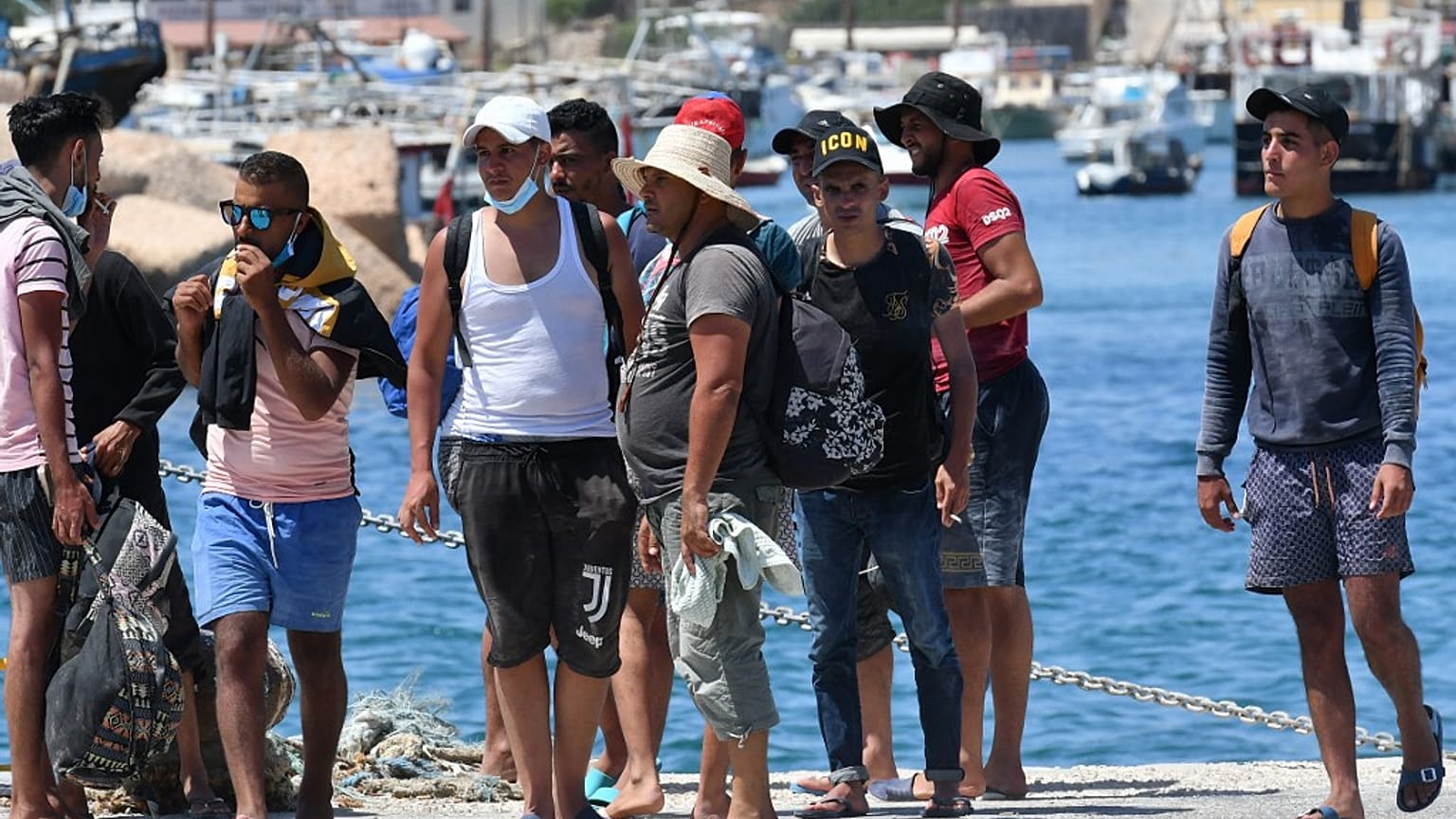Some believe there is no future in Europe. For others, Kais Saied’s recent power grab will persuade people to stay.
Two weeks after Tunisia's President Kais Saied ousted the government and froze the activities of parliament, Tunisians continue to leave the country because of the lack of opportunities.
Tunisia's president has yet to appoint a new prime minister and lay out a clear roadmap for the country's future, but people still look for ways out, hoping for a better future in Europe.
'There's no future here in Tunisia'
Last year the number of Tunisians heading for Europe was the highest since 2011, reported AFP, and there is evidence the flows are continuing. Rome said the number of migrants who reached Italian shores in May and June this year is more than triple compared to the previous year's figure. Up until August 9, just under a quarter of the total arrivals were Tunisians, according to data from Italy's interior ministry.
One 19-year-old Euronews spoke to is hoping to follow in their footsteps.
He hopes to cross to Italy -- by sneaking onto a Europe-bound truck -- and then travel to Switzerland to become a football player. He says "there is no future here in Tunisia".
Immigrating illegally is not without its risks, but the young migrant is not "too worried" about the danger, saying that "a number of guys from my neighbourhood went this way".
But, equally, there are voices that caution against emigrating from Tunisia.
Mehdi, who lives in the capital Tunis, lost a 20-year-old neighbour who had sneaked into a refrigerated container. His frozen body was found when the ship docked in Italy.
"They think that life in Europe is beautiful. That it's paradise," Mehdi told Euronews.
The Tunis resident said he's not going anywhere. He has a job, a girlfriend and a family to look after. He hopes a "new" Tunisia will one day offer all Tunisians better chances so that people feel like they can stay.
The central Mediterranean route, from North Africa to places like Italy, is the deadliest maritime migration route in the world, according to the International Organization for Migration (IOM). As of August 9, 1,009 people have died so far in 2021, up from 332 last year.
'People are thinking less about immigrating illegally'
Bilal Weld Hasna was born and raised in Kelibia, a coastal town in north-eastern Tunisia, from where he attempted the dangerous Mediterranean crossing more than once.
"I went twelve times. I’ve been immigrating since 2012 or 2011. Last time I crossed was in 2017. Sometimes I went two or three times per year," he told Euronews.
Although immigration is an ongoing issue in Tunisia, Bilal believes Kais Saied’s power grab will not trigger a mass exodus, on the contrary.
“People are happy and are thinking less about immigrating illegally. Well done Kais Saied. I swear, it’s not a coup. He should have done this a long time ago to help the people, otherwise, everyone will immigrate. If he hadn’t done that, the country would have been on fire and everyone would have left, men, women, children, and elderly,” Bilal added.
Tunisian authorities claim that the explanation for the departures is that young people are being paid to leave the country illegally, to damage Tunisia from within and hurt its ties with the European Union.
Watch the full video report in the player above.















